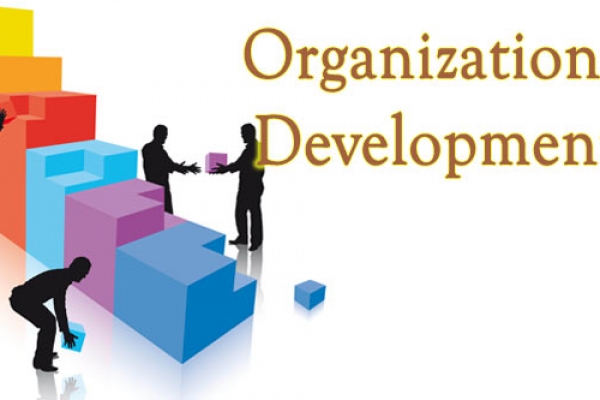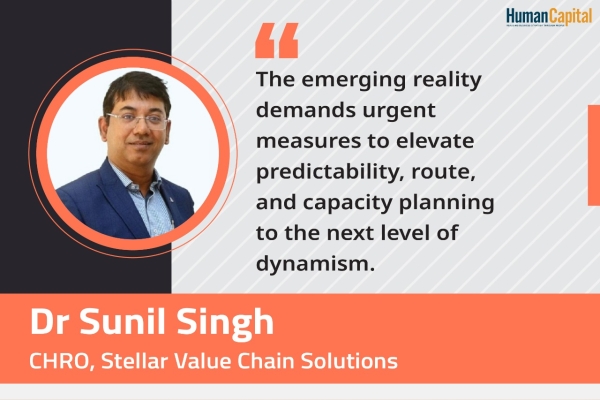Setting standards is among those aspects that are of major concern for Organisational Development (OD) Professionals. While focusing on advances in technology such as implementing Artificial Intelligence (AI), Machine Learning (ML), Robotics, Blockchain to the Organisational Development space, one should not forget the importance of setting and maintaining high standards and communicating the same to the stakeholders within the organization.
The primary question is “What happens if standards are not set in the context of the organization?”
Without standards
1. The development of the organization will be in chaos
2. The stakeholders will view the organization as ad hoc and informal
3. The long-term growth of the organization will be impacted negatively
Simply put, it results in organizational dysfunction. Hence, there is a case for OD professionals investing their time and energy in setting standards and adhering to them. Setting and maintaining high standards is indisputably the key to success in building an organization and taking it to the next orbit. Organizations that do well have consistently demonstrated exactingly high standards. Irrespective of the zeitgeist - such as the VUCA environment- adhering to standards gives the basic health to the organization.
Standards are a set of established guidelines meant for the functioning of organizations. Standards are also meant to govern employers and employees with respect to various organization-related actions. How do standards differ from characteristic organizational policies and Codes of Conduct? Instead of being phrased in terms of general dos and don’ts, standards describe a specific organization’s desired philosophical approach. The author’s perspective is to outline the essential ingredients of setting standards from the point of view of organizational development. This view has been developed from the review of various applied and clinical models.
“Standards are a set of established guidelines meant for the functioning of organizations. Standards are also meant to govern employers and employees with respect to various organization-related actions.”
Models of OD consultation
Three models of OD consultation were outlined by Schein (1998) as follows:
1. Purchasing expertise from the marketplace
2. Following the clinical model, namely the Doctor-Patient prescriptive methodology
3. Using process consultation model.
Among these models, the process consultation model has gained significant popularity in view of its merits. This model views an OD professional/consultant, not as an expert who corrects the problem and terminates their association with the organization subsequent to the attainment of results. Instead, the OD professional collaborates with the organization as an internal change agent and facilitates all aspects related to organizational development. OD professionals need to view that organizational development is a gestalt (whole is greater than the sum of its parts) process. The nucleus of OD is to increase organization effectiveness by collaborating with top management teams and cross section of employees and by intervening in the ongoing processes of an organization.
The trigger points
The following pointers may function as triggers to OD Professionals in setting standards which will help in overcoming organizational dysfunction.
1. Back to fundamentals - Is the vision in place? How clear is the vision? When was the vision formulated? Was the said vision conceived by a single person or was it co-created? How often is the vision visited in its true spirit and not as a mechanical activity? Has anyone taken up the process of envisioning in the organization?
2. Has there been an operational vision for the organization? In other words, are the agreed upon key performance indicators in place or otherwise? If so, when is it in place - is it at the beginning or middle of the financial year?
3. While core values are outlined by the organizations, the attempt to consciously inculcate and live by those core values may appear to be reportedly minimal. Have organizations developed stories on each of the core values of the organization? Have the stories been documented and narrated?
4. How about culture? When were the last time an objective culture survey was taken up and its findings shared? Has there been any attempt to systematically build new elements of culture?
An essential role played by the OD Professionals is in the domain of change. They attempt to diagnose the growth dysfunction and conceive any changes that are required.
How serious is an organization about learning? Employees at all levels - and the organization as a whole - need to learn, unlearn, relearn, and truly learn to create and invent new growth models at an individual and organizational level. Creating an environment of employee involvement is necessary since people support what they build.
While team building interventions are carried out, have they been evaluated and contextualized for index teams and followed up for a required length of time? Return on investment is also an issue of concern which needs to be addressed diligently.
Nurturing a culture of coaching and mentoring to set and attain goals, to impart wisdom to new generation employees, to handle disappointments, frustrations, and to engage the employees meaningfully is the new norm in contemporary world-class organizations. OD Professionals play a huge role even in this aspect.
Developing Leaders
To develop leaders in an organization across all levels, OD Professionals are required to be leaders. Hence, leadership development should be a priority for the development of an organization, or else the result is organizational myopia.
The methodology that needs to be adopted in OD is Appreciative Inquiry, where five processes are involved as given by Watkins and Moher in 2001
(a) Choosing the positive as the focus of inquiry
(b) Inquire into stories of life-giving forces
(c) Locate themes and select agenda for future inquiry
(d) Create a shared image of a preferred future
(e) Develop innovative strategies to create that future.
Endorsing the perspective
OD professionals need to endorse the perspective of appreciative inquiry rather than fly in the ointment. Eliciting the absolute commitment of top management - time and resources, crystal clear organisation-wide communication, understanding the power dynamics and the politricks of the organisation, facilitating action learning in the organisation, giving importance to personal, interpersonal, team, interdepartmental, cross-functional team developmental activity, putting feedback in place, and encouraging innovation are some of the practices that OD professionals should follow.
OD is like a multi-dimensional prism, and to keep the OD engine going, OD Professionals must update and reorient themselves. How an OD Professional can multiply and mitigate Organisational Effectiveness is a matter of significant concern and utmost reality. Setting standards is dynamic in nature and OD professionals need to scan the environment and integrate necessary skills and competencies.
“OD is like a multi-dimensional prism, and to keep the OD engine going, OD Professionals must update and reorient themselves. How an OD Professional can multiply and mitigate Organisational Effectiveness is a matter of significant concern and utmost reality.”
Do you look forward to permanently working from home after the pandemic subsides?
Trending
-
SBI General Insurance Launches Digital Health Campaign
-
CredR Rolls Out 'Life Happens' Leave For Its Employees
-
Meesho Announces 30-Week Gender-Neutral Parental Leave Policy
-
Microsoft Unveils Tech Resilience Curriculum To Foster An Inclusive Future
-
60% Indian Professionals Looking For Job Change Due To COVID: Survey
-
SpringPeople And Siemens Collaborate For Digital Transformation Push
-
86% Professionals Believe Hybrid Work Is Essential For Work Life Balance: Report
-
Almost 1 In Every 3 People's Personal Life Affected Due To Work Stress
-
Meesho Rolls Out Reset And Recharge Policy For Employees
-
80% Of Talent Leaders & Academics Say Pandemic Changed Skill Needs For Youth: Report
-
Hero Electric Rolls Out 'Hero Care' Program For Employees
-
Human Capital In Collaboration With ASSOCHAM Hosts Virtual Conference
-
IKEA India, Tata STRIVE Collaborate To Create Employability And Entrepreneurship Opportunities
-
SAP India, Microsoft Launch Tech Skilling Program for Young Women
-
DXC Technology, NASSCOM Collaborate For Employability Skills Program
-
Lenskart To Hire Over 2000 Employees Across India By 2022
-
Mindtree Launches Learn-and-Earn Program
-
Tata AIA Extends 'Raksha Ka Teeka' To Its Employees
-
Swadesh Behera Is The New CPO Of Titan
-
NetConnect Global Plans To Recruit 5000 Tech Professionals In India
-
Hubhopper Plans To Hire 60% Of Indian Podcasters By 2022
-
Corporate India Needs More Women In Leadership Roles: Report
-
Aon to Invest $30 Million and Create 10,000 Apprenticeships by 2030
-
Tech Mahindra Launches ‘Gift a Career’ Initiative for Upskilling of Youth
-
40% Women Prefer Flexible Working Options in Post-COVID World: Survey
-
3 out of 4 companies believe they can effectively hire employees virtually: Report
-
Vodafone , CGI and NASSCOM Foundation launch digital skills platform
-
Odisha: Bank, postal employees to deliver cash for elderly, differently-abled persons
-
Skill India launches AI-based digital platform for "Skilled Workforce"
-
Hiring activity declines 6.73% in first quarter: Survey
-
70% startups impacted by COVID-19 pandemic
-
Bajaj Allianz Life ropes in Santanu Banerjee as CHRO
-
Over 70 Percent MSMEs look at cutting jobs to sustain businesses
-
93 Per Cent employees stressed about returning to office post-lockdown
-
Johnson & Johnson India announces family benefits for same gender partners
-
Indian firms turning friendly towards working mothers
-
Welspun India names Rajendra Mehta as new CHRO
-
Wipro partners with NASSCOM to launch Future Skills platform



Human Capital is niche media organisation for HR and Corporate. Our aim is to create an outstanding user experience for all our clients, readers, employers and employees through inspiring, industry-leading content pieces in the form of case studies, analysis, expert reports, authored articles and blogs. We cover topics such as talent acquisition, learning and development, diversity and inclusion, leadership, compensation, recruitment and many more.
Subscribe Now












































Comment